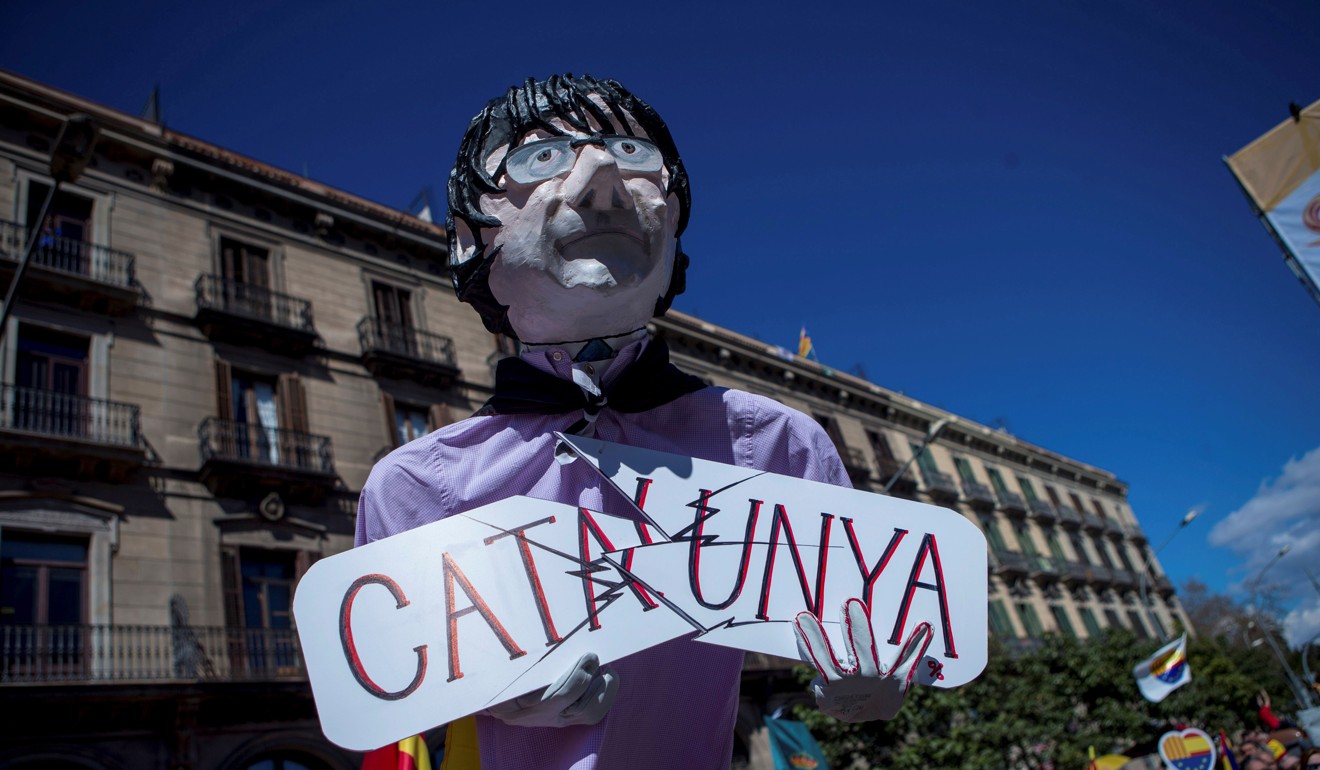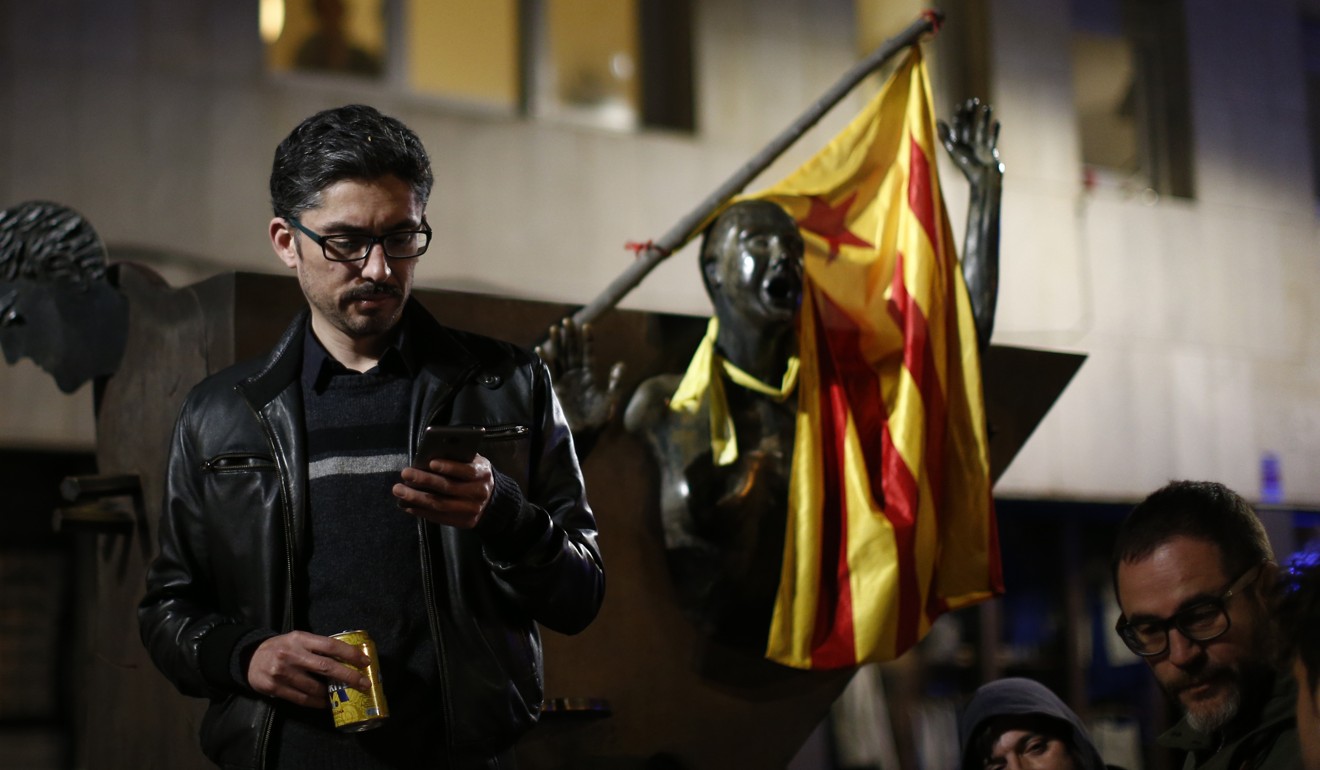
Former Catalan president said he should have declared independence from Spain earlier
Catalonia’s deposed leader Carles Puigdemont said in an interview published on Sunday that he should have declared independence earlier, as delaying the call hoping to start a dialogue with Madrid proved futile.
Puigdemont moved to Belgium after the Catalan parliament unilaterally declared independence on October 27 following a banned referendum on the Spanish region’s secession.
He is in Geneva this weekend to attend a human rights film festival.

Asked by the Tribune de Genève newspaper if he would have done anything differently in the tension-filled days that followed the October 1 referendum, Puigdemont said he would not have waited until the 27th to make the independence call.
“There is one thing I would have done differently. On October 10, we had planned to proclaim independence, but I decided to suspend the definitive move to leave a door open for dialogue with the Spanish government,” he said.
He explained that he was urged to do so by sources within the Spanish government.
“So I acted responsibly, even riskily because everyone expected a clear proclamation. I chose to give a chance to dialogue.
“Unfortunately, it was a trap because there was no positive reaction from the government. If I were to do it over again, I would not have suspended the independence declaration,” he said.
In a separate earlier interview with Switzerland’s public broadcaster, Puigdemont said a majority of Catalans might accept being part of a Swiss-style federal system in Spain instead of full independence, a suggestion he reiterated on Sunday.
Puigdemont faces arrest if he returns to Spain over his role in Catalonia’s separatist push.

Spanish Prime Minister Mariano Rajoy’s conservative government has dissolved Catalonia’s parliament and imposed direct rule over the region.
The government in Madrid and Spain’s highest court insist it is illegal and against the constitution for autonomous regions to declare independence.
Puigdemont spoke later to a small group of reporters in Geneva, where he underscored that the only solution to the current political deadlock in Catalonia is for Madrid to respect the results of last December’s elections.
Rajoy called the snap polls but suffered a blow when separatist parties again won an absolute majority of seats in the 135-seat Catalan parliament.
Puigdemont gave up his claim to serve as president of the new parliament and threw his support behind separatist leader Jordi Sanchez, in custody since October pending sedition charges.
Madrid has said Sanchez cannot serve from prison, intensifying the stalemate in the region.
For Puigdemont, the priority is for “the Spanish state to have a little more respect for the decisions made by Catalans on December 21 and stop interfering in parliament.”
“I would be a good sign for everyone if the Spanish government changed its attitude and respected the fact that they are not facing criminals but representatives of a popular movement and that, in a democracy, you have to respect that,” he told reporters.

.png?itok=arIb17P0)